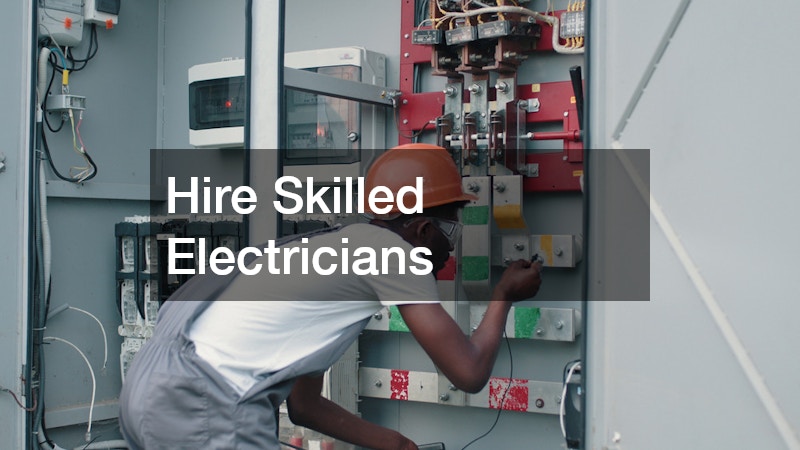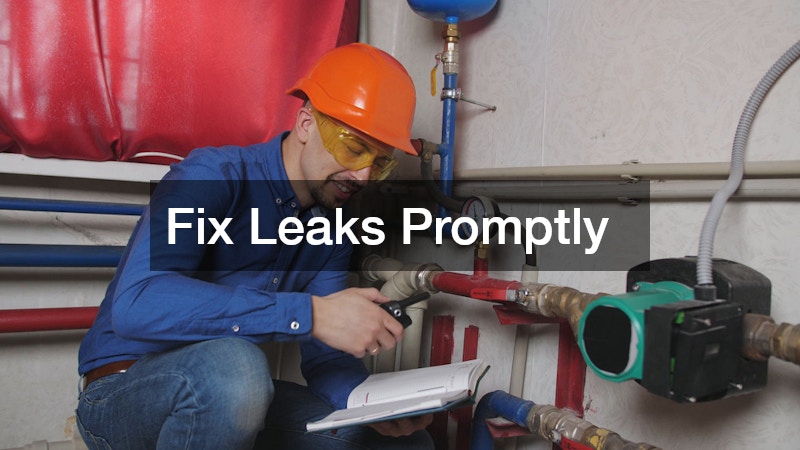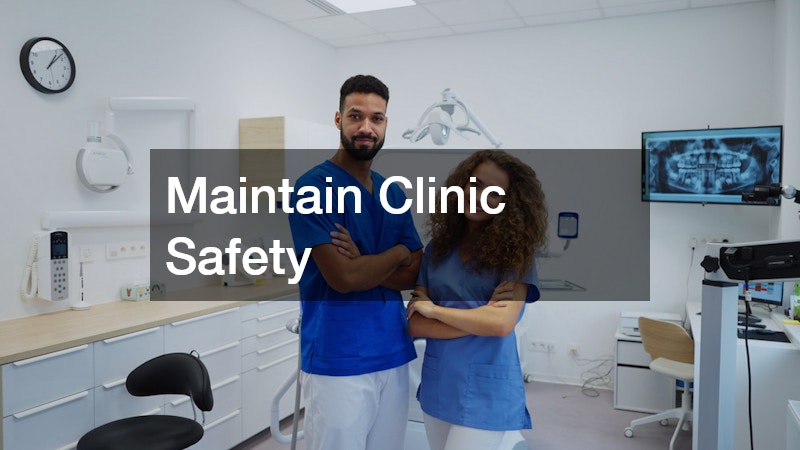When patients walk into a dental clinic, they expect a clean, safe and professional environment. But delivering excellent oral healthcare goes far beyond sterile instruments and skilled staff—it begins with the clinic itself. Behind every smooth check-up or cleaning is a foundation of well-maintained systems, from plumbing and lighting to air quality and electrical safety. That’s where building and property maintenance come in.
Well-managed maintenance reduces the risk of disruption during procedures and ensures the clinic complies with health and safety standards. Small oversights—like a flickering light, an unchecked leak or an overloaded circuit—can lead to serious consequences, both for patient comfort and for the equipment that dental professionals rely on daily.
This article explores the vital role of property upkeep in dental settings, focusing on how choosing qualified electricians, managing water leaks and maintaining safety protocols keeps every aspect of a dental practice running smoothly. While often operating behind the scenes, building and property repairs play a leading role in the quality of care that patients receive. In a field where precision and hygiene are essential, a well-maintained space isn’t a luxury—it’s a necessity.
Hire Skilled Electricians

Dental practices are filled with specialised technology that relies on stable and consistent power. From autoclaves and suction systems to dental chairs and diagnostic tools, all equipment must function without fail during a procedure. Without reliable electricity, even a routine dental cleaning can become a challenge. That’s why sourcing experienced professionals to manage electrical systems is so important. Electrical faults are more than an inconvenience—they can jeopardise patient safety, compromise sterilisation standards and affect productivity throughout the day.
Having a trusted electrician on call also allows the dental team to focus on patient care rather than troubleshooting power issues. These professionals can ensure that lighting is adequate in clinical zones, machines are properly grounded, and backup systems are ready in case of outages. Regular testing and tagging of electrical equipment is part of responsible building and property maintenance, reducing the risk of faults and ensuring compliance with Australian regulations. With expert electricians involved in ongoing maintenance, clinics can prevent many disruptions before they start.
Fix Leaks Promptly

Plumbing is another critical system that can affect the cleanliness and functionality of a dental practice. Water leaks—whether hidden behind a wall or dripping under a sink—can lead to damp, mould, and hygiene risks. Even a minor leak can disrupt cleaning protocols, reduce water pressure for tools or damage cabinetry and flooring. Worse, persistent moisture can create a breeding ground for bacteria—something no dental patient wants near their treatment area.
Preventive maintenance makes all the difference. A routine inspection schedule helps identify water leaks early, well before they cause damage. It also ensures basins, autoclaves and dental delivery units are working efficiently and draining properly. In the context of building and property upkeep, this kind of plumbing oversight protects the structural integrity of the space while supporting a sterile environment. For patients, this means confidence that their dental cleanings are carried out in conditions that meet the highest hygiene standards.
Maintain Clinic Safety

Safety is a top priority in any dental clinic, not just in how care is delivered but also in how the space is maintained. Slip hazards, poor ventilation, flickering lights or improperly stored chemicals can all increase risks for both patients and staff. A well-maintained clinic follows best practices in layout, air quality, signage and emergency preparedness. These details may not be visible to the average patient, but they contribute directly to a safe and stress-free experience.
Routine assessments and repairs are part of responsible building and property assistance and help ensure every corner of the dental clinic meets Australian safety and accessibility standards. For example, ensuring proper airflow and filtration reduces airborne contaminants, especially important in procedures that generate aerosols. Clear walkways, ergonomic seating and well-marked exits all form part of a maintenance plan that prioritises safety and comfort. When patients and staff feel safe, dental care becomes smoother, more efficient and more effective.
Building and property maintenance play a vital role in supporting the operations of every dental clinic. By hiring skilled electricians, fixing water leaks promptly and maintaining overall safety, dental practices can provide a consistently hygienic and reliable environment. These systems, though often invisible to patients, underpin every successful dental cleaning. Investing in regular upkeep not only protects expensive equipment but also builds trust with patients who rely on professional standards of care. For clinics that want to stay compliant, efficient and patient-focused, proactive maintenance is a cornerstone of long-term success.
